While the nearly endless flow of ads, leaflets and rallies may have been the most visible part of the midterm election cycle, the hard-working team of elections officials in Athens-Clarke County spent months working behind the scenes to get their community ready for Election Day.
Why It’s Newsworthy: During this midterm cycle, election officials faced increased scrutiny after the 2020 election created doubts and denial over the election outcome. Local officials also had to adjust to Georgia’s Senate Bill 202, which made many procedural changes to the election process.
Charlotte Sosebee, director of the Athens-Clarke County Board of Elections and Voter Registration, is involved in every step of the process from the initial qualification of the candidates to the preparation, testing and operation of the voting equipment.
“It takes about four and a half months to plan an election, but I am trying to be six months ahead because we know what’s coming,” says Sosebee.
Sosebee became ACC’s Director of Elections in 2016, but she began her career in election administration in 1989 when she started working as an election clerk. “This is not just a job for us, this is a career and a profession,” she adds.
Sosebee’s coworker, Lisa McGlaun, started as a poll worker before she became an elections assistant for ACC in 2019.
“It was a lot of fun, and I really enjoyed it,” McGlaun says. “That’s kind of where I caught the bug.”
For McGlaun, Election Day 2022 was the culmination of many months of hard work. “In our county, I think of it as running 24 pop-up stores on Election Day.”
Testing and Training Process
During this election cycle, McGlaun made sure the voting equipment was tested and ready for delivery to each precinct. She also helped hire and train poll workers.
“We run about two weeks of training classes, usually a minimum of about 20 classes that people can come to,” says McGlaun.
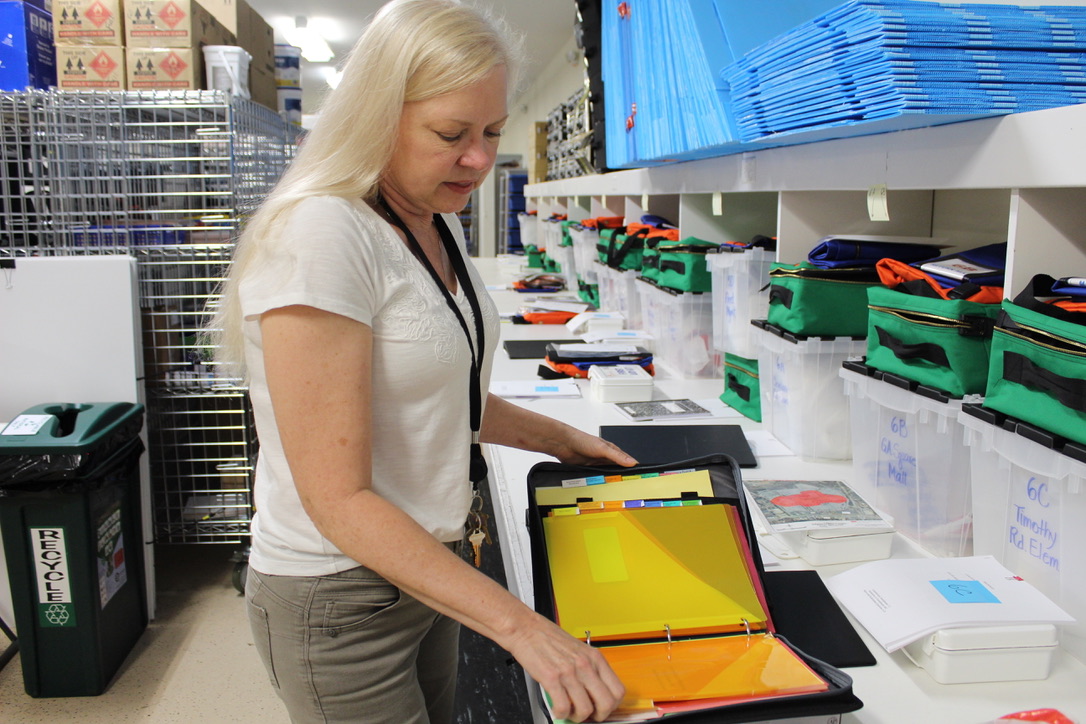
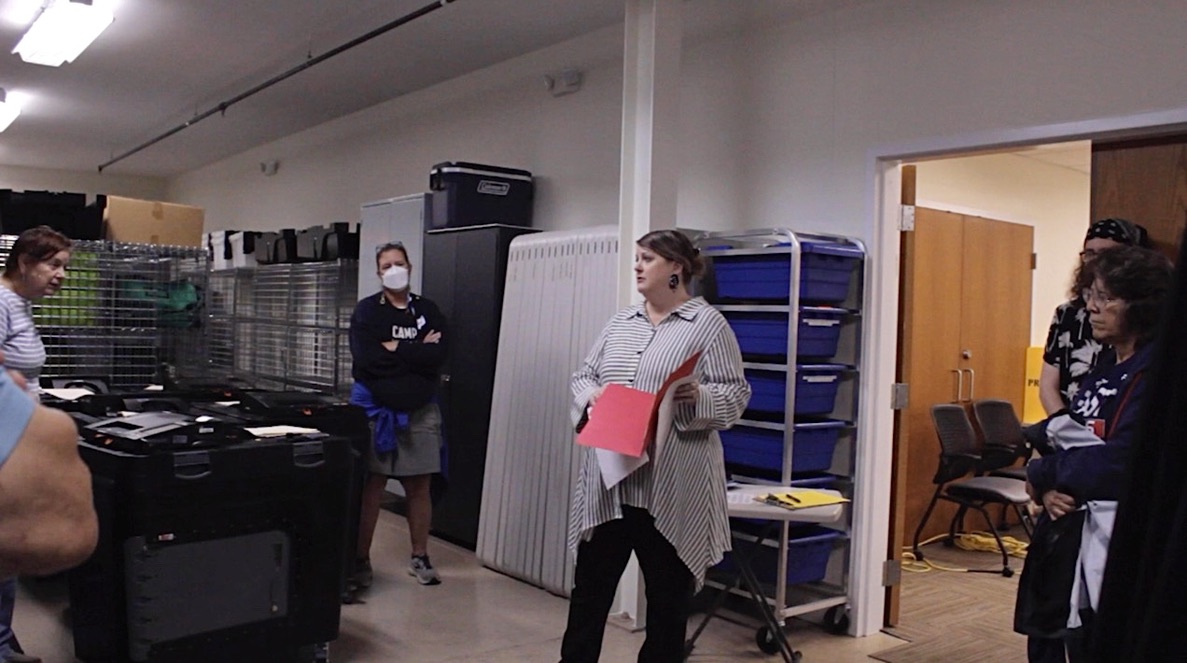
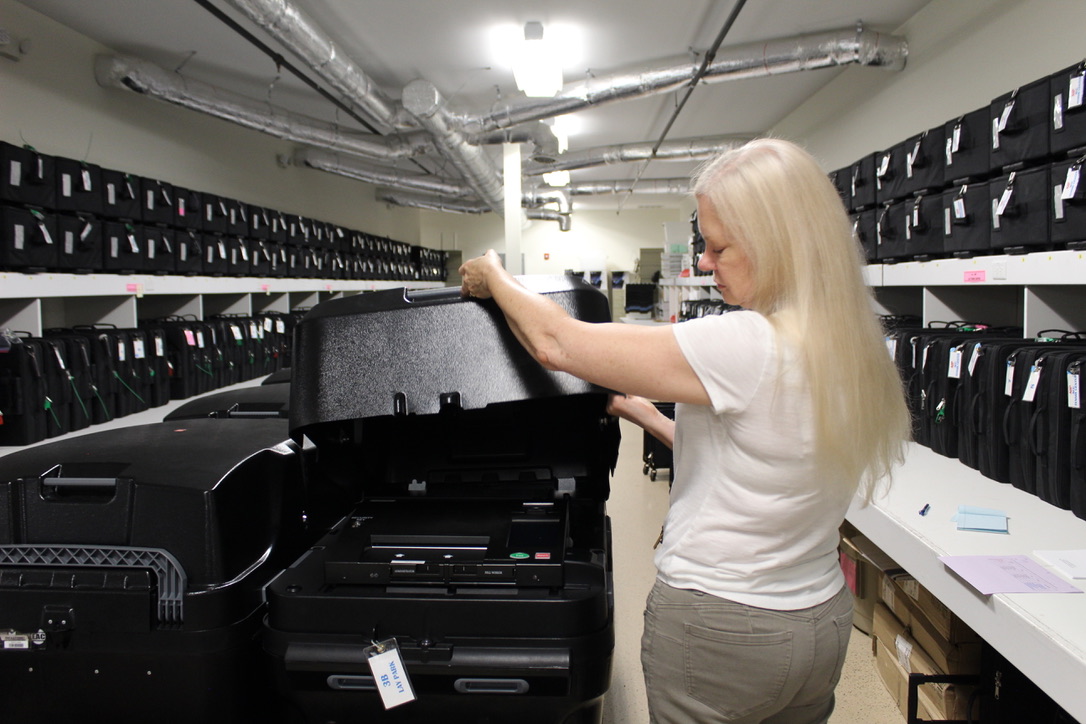
Elections clerk and area manager Rene Russo led some of those poll worker trainings, which teach the attendees how to check each voter’s registration and how to operate the voting equipment. She also teaches them what to do if they encounter frustrated or angry voters.
The elections office has emergency procedures in the event of a threat to a poll worker.
“Certainly we do talk about how to deal with voters, talking about trying to calm voters down if somebody is coming in and, you know, trying to stir the pot,” says Russo.
Threats to Election Workers
The Department of Justice launched the Election Threats Task Force in July 2021 to combat an increase in threats to election workers after the 2020 election.
According to a report by the DOJ, the task force found that “58% of the total of potentially criminal threats were in states that underwent 2020 post-election lawsuits, recounts, and audits, such as Arizona, Georgia, Colorado, Michigan, Pennsylvania, Nevada, and Wisconsin.”
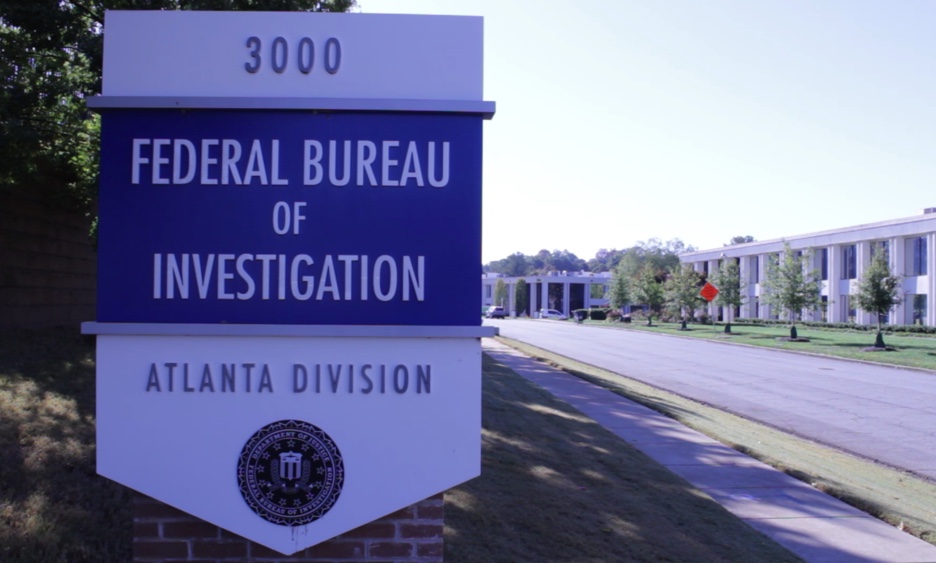
Supervisory Special Agent Keith Kabrhel oversees the Public Corruption and Civil Rights Squad, which investigates election crimes from the FBI’s field office in Atlanta, Georgia.
“If someone’s working at a polling place and someone threatens them in some way, the FBI takes that very seriously, and working with the Department of Justice, we investigate those crimes,” says Kabrhel.
Over the past few years, the FBI has shifted its focus to preventing election crimes rather than just responding to the criminal activity, according to Kabrhel. “One of our top priorities is election integrity and being able to provide that confidence to the American people,” he says.
The FBI provided election officials with resources such as webinars and individual points of contact for each field office across the country. “There have been a series of those webinars and they are made available to any election official who wants to participate,” said Kabrhel.
McGlaun attended one of the webinars provided by the DOJ in August 2022, and she took note of the various resources provided for the election community.
2020 Election Fallout and SB 202
The highly scrutinized 2020 election cycle was one of McGlaun’s first experiences as an elections assistant.
“There was so much information that went around,” McGlaun says, much of it spread through social media channels.
She worries that deliberate attempts to mislead voters, “put doubt into people’s minds that it began to be that we couldn’t do any process that we needed to do without someone looking over our shoulder.”
The fallout of the 2020 election cycle plunged the United States into a period of denial and public distrust in the election process.
The Georgia legislature passed Senate Bill 202, or the Election Integrity Act, in 2021. The law shortened the time period for voters to request an absentee ballot, decreased the number and availability of ballot drop-boxes, shortened the window of time between general and runoff elections and made voting procedures subject to stricter security measures.
“I can see how people on both sides of the issue would think that the implementations were a good idea,” says McGlaun. “But sometimes it felt to me like the regulations in SB 202 were a reaction to election denial claims and trying to solve problems that were never problems in the first place.”
2020 Recounts and Audits
After the 2020 election, in addition to conducting a recount for the presidential race, ACC election officials ran a Risk Limiting Audit by hand, tallying every ballot and comparing it to the original vote totals.
“Both times we were ‘right on the money’ for the totals, if anything that proves that we’re doing our jobs correctly,” says McGlaun.
Reflecting on SB 202, Sosebee says, “there are always changes, some changes are good, some changes aren’t really good at all, but those, I think, are opportunities for us to grow and expand in the profession of elections.”
Both Sosebee and McGlaun believe that transparency in the election process can boost public confidence in the integrity of the election system.
“It is our job to educate our voters to make sure there is a clear understanding of our processes,” says Sosebee.
Restoring Faith in Elections
This fall, the elections office worked with the community to educate voters by appearing at events such as Ready. Set. VOTE! hosted by the Unitarian Universalist Fellowship of Athens on Sept. 20.
Employees from the board of elections staffed a table at the event, delivered remarks and gave a presentation to help educate the community on voter security measures and the changes from SB 202.
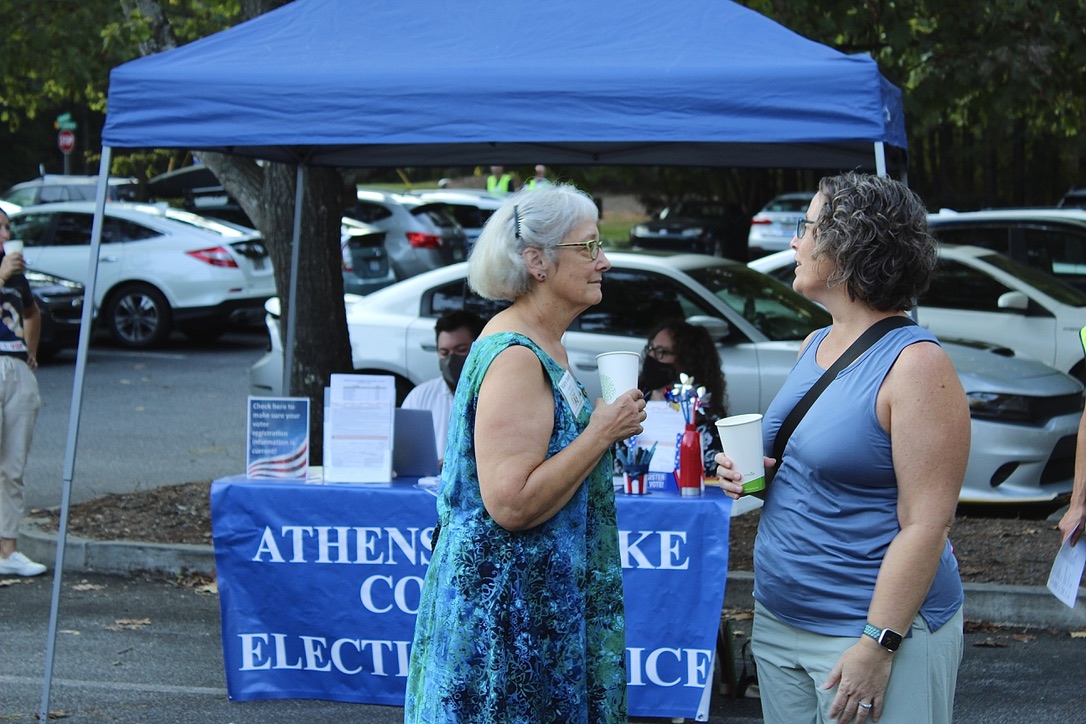
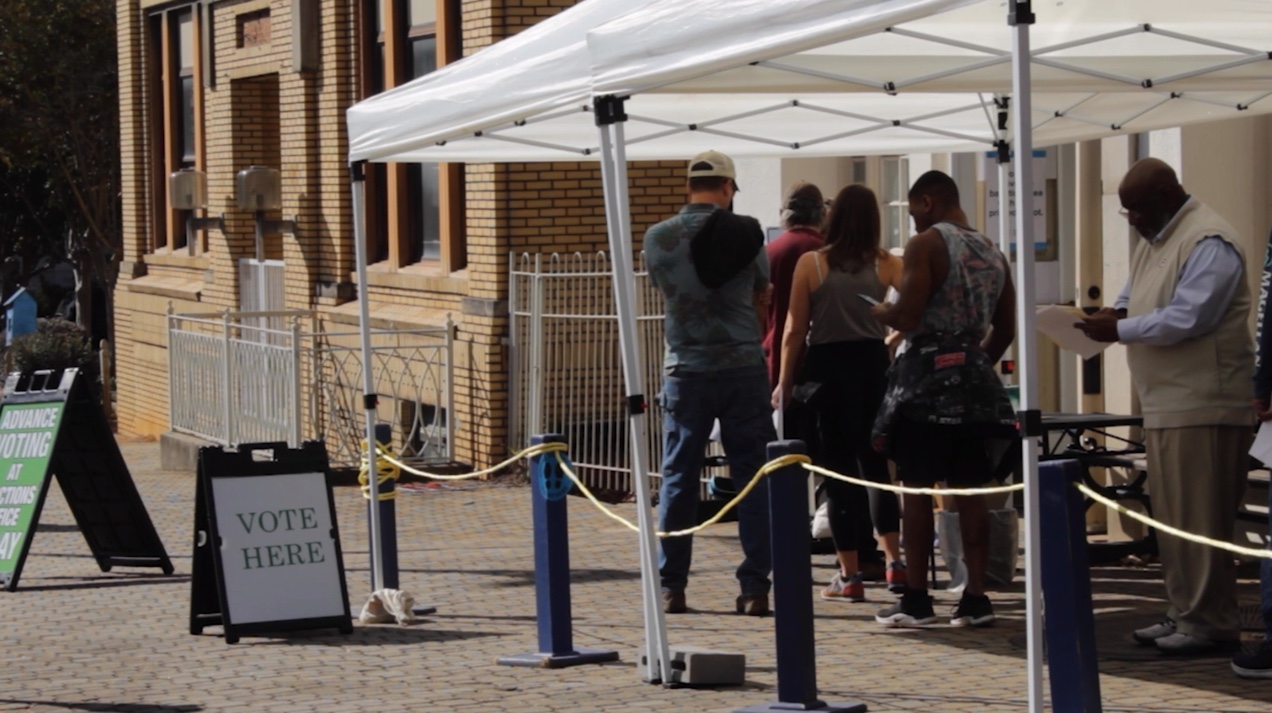
After the tumultuous 2020 election cycle and the procedural changes from SB 202, preparing for the 2022 midterm elections was not an easy task. Both Sosebee and McGlaun say their office quickly adjusted to these challenges, using a vast array of resources to educate the community and restore voters’ confidence in the electoral process.
“When I run an election, I’m not thinking about the different candidates on the ballot, I’m thinking about did I help run the election in the best way possible so that my neighbors, my friends, and my community members can go vote and trust that their vote was handled correctly,” said McGlaun.
Jenna Monnin is a fourth-year student majoring in journalism and political science.


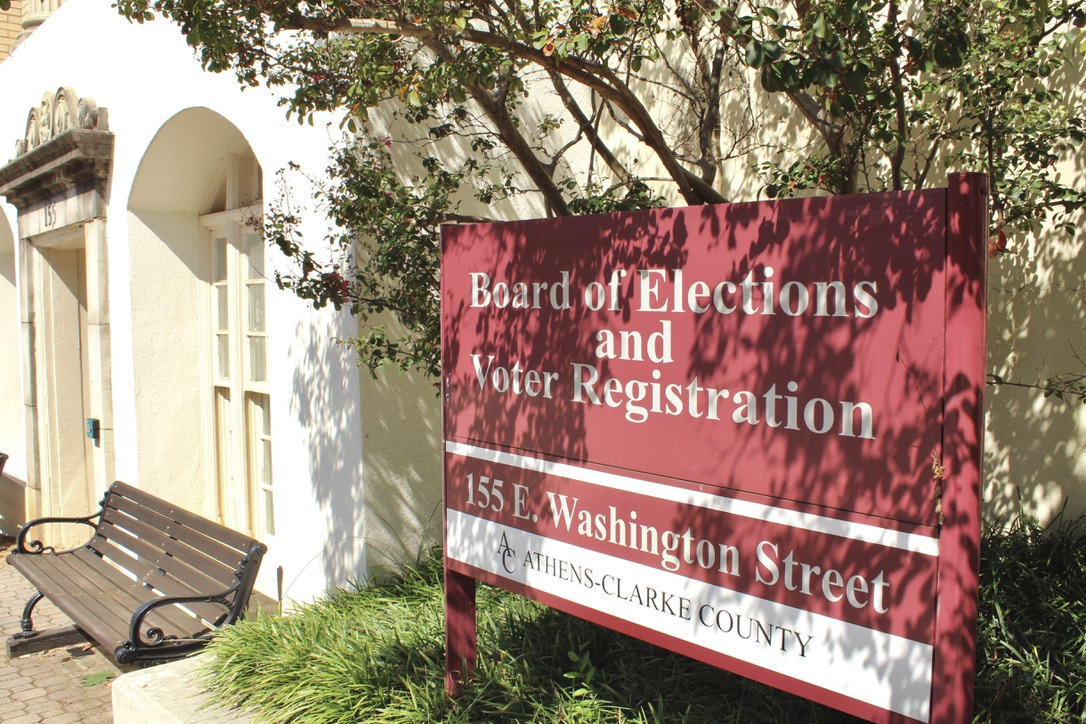
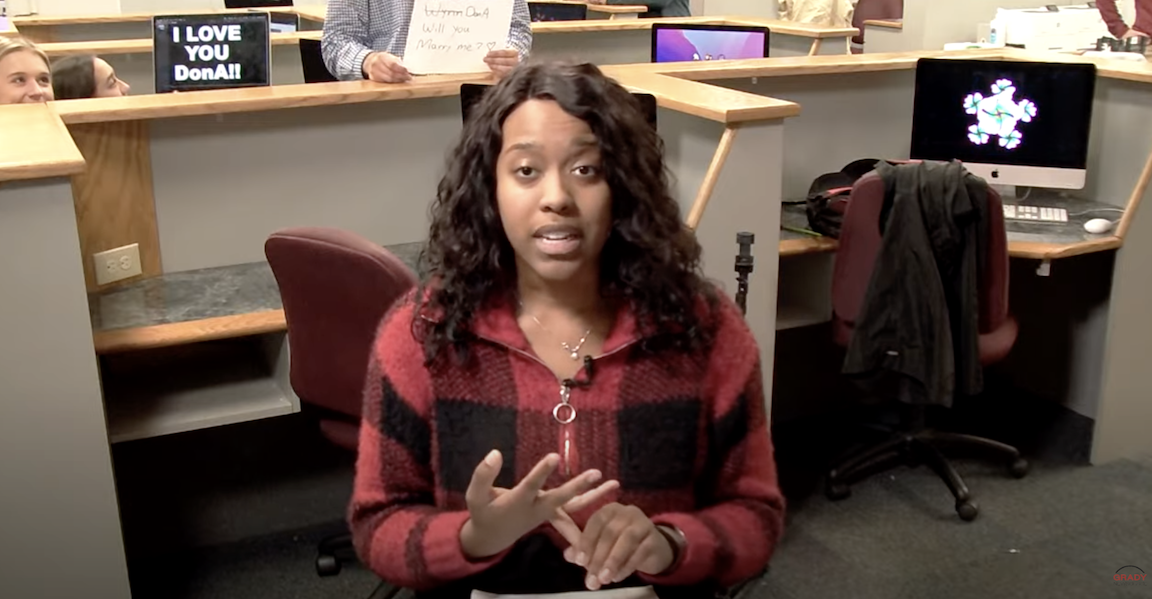





Show Comments (0)